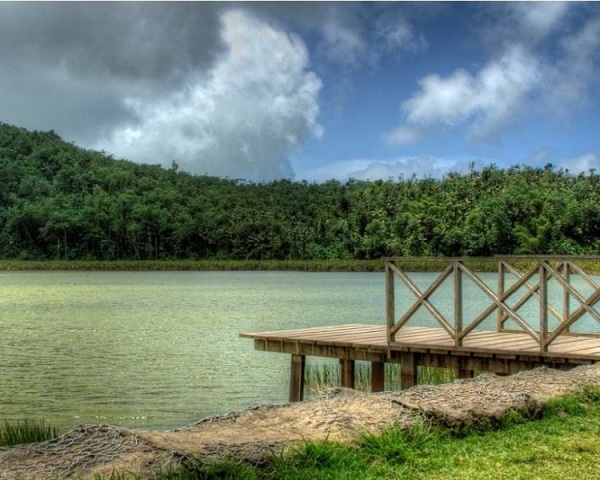Ever wondered what is interesting about the country of Grenada? This article will give you some interesting facts about Grenada.
Facts About Grenada
Grenada is a country that lies in the southeastern part of the Caribbean Sea. It is a sovereign state that includes the island of Grenada and six other smaller islands. The easiest way to locate it on a map is to look for the islands between the continents of North and South America (closer to South America). Even though the islands of Grenada were discovered by Columbus in 1498, it was only in the 17 century that the French came and colonized it. After the French, Grenada was colonized by the British in 1762. Grenada, finally, received its independence from British rule only to be seized by a Marxist military council in 1983. The country has a very rich history and a culture that still shows how much regard the people have for festivals, fairs, and markets. With its pristine beaches and diverse coral reefs, it is a hot spot for many tourists.

Interesting And Fun Facts About Grenada
- The original inhabitants of Grenada known as the Carib Indians or Kalinago’s called it Camahogne.
- The oldest record of the history of Grenada dates back to 1498, the year Columbus discovered the islands. It was he who named the islands 'Concepcion'.
- The name 'Concepcion' was changed by the sailors of his fleet, to 'Granada' after they fell in love with the beauty of the place.
- The French arrived in Grenada on 20th June 1650 and got engaged in a bloody campaign to take control of the island from the Caribs.
- In an attack led by the Caribs on the fort of St. George, once defeated, the Carib were chased all the way by the French to a steep sea side cliff. Once there, the Carib saw that they had no escape and jumped over into the sea. All those who jumped perished and that point got named ‘Le Morne des Sauteurs’ or ‘Jumpers Hill’.
- Once the French gained control of Grenada, they changed the name from Granada to 'Grenade' which was finally changed to 'Grenada' by the British, when they took over the islands.
- After a ninety year long struggle with the British, the French finally gave control of Grenada to the British after signing the treaty of Versailles in 1783.
- The first thing that the British did in Grenada was to increase the sugar plantation in Grenada.
- 1795 was the year when the slaves working for the British revolted. They were led by Julian Fedon. The revolt however was crushed quickly.
- The British finally abolished slavery in Grenada in 1834 which also helped ease the friction caused by the revolt of 1795.
- In 1967 Grenada was named as an associate state in the British Commonwealth and was declared independent seven years later.
- Grenada adopted its constitution on December 19, 1973 and became independent on February 7, 1974.
- On October 19, 1983 Grenada was seized by a Cuban trained, Marxist military Council who then executed the Prime Minister Maurice Bishop and other members of his cabinet. This prompted the United States to send in troops to throw over the military forces.
- The current form of government in Grenada is a parliamentary democracy with the Queen of the United Kingdom as the Head of State.
- Capital of Grenada is St. George's. The city is a popular tourist destination and was built by the French in 1650.
- The economy of Grenada is heavily dependent on tourism as its main source of foreign exchange.
- Two of the main crops grown in Grenada are nutmeg and cocoa. They are grown for commercial purposes and suffered great damage at the hands of hurricane Ivan. Other spices grown in Grenada include mace, cinnamon, and cloves.
- Grenada also plays host to eco-tourists who come there attracted by the lush green rain forests and estuaries.
- Since Grenada lies on the edge of the hurricane belt, the hurricane season there lasts from June to September.
- The highest point in Grenada is the top of ‘Mount Saint Catherine’ that sits at an altitude of 840 meters (2755 feet).
- The current population estimate of Grenada stands at 107,818 as of July 2010.
- Almost all the people of Grenada follow Christianity with about 53% of them being Roman Catholics, 33% being Protestants and 14% being Anglicans.
- The official language of Grenada is English. Attempts have been made to revive Patois and have been successful to an extent.
- The architecture found in Grenada strongly reflects its European past and influence.
- The most popular breakfast drink in Grenada is cocoa tea and the eating habits of the people include bread, vegetables, rice and fruits.
More from iloveindia.com
- Home Remedies | Ayurveda | Vastu | Yoga | Feng Shui | Tattoos | Fitness | Garden | Nutrition | Parenting | Bikes | Cars | Baby Care | Indian Weddings | Festivals | Party ideas | Horoscope 2015 | Pets | Finance | Figures of Speech | Hotels in India : Delhi | Hyderabad | Chennai | Mumbai | Kolkata | Bangalore | Ahmedabad | Jaipur
- Contact Us Careers Disclaimer Privacy Policy Advertise With Us Lifestyle Sitemap Copyright iloveindia.com. All Rights Reserved.







